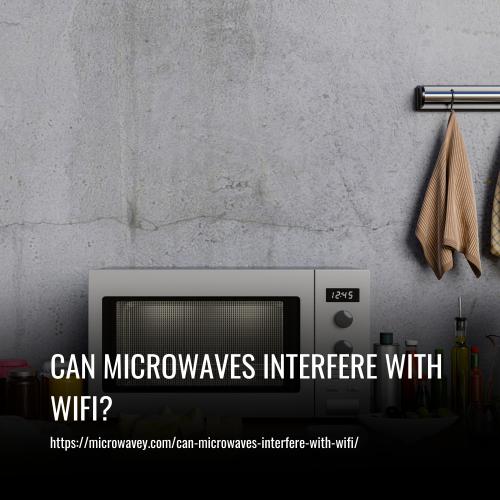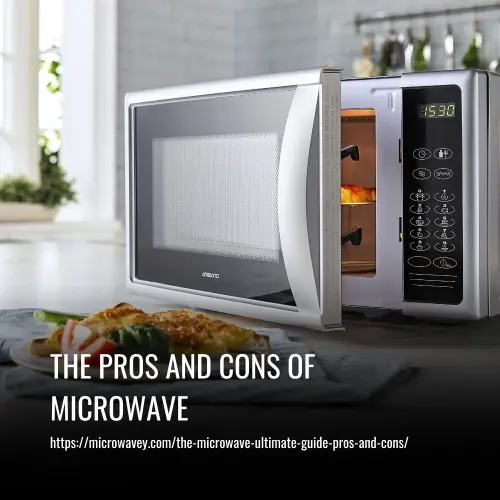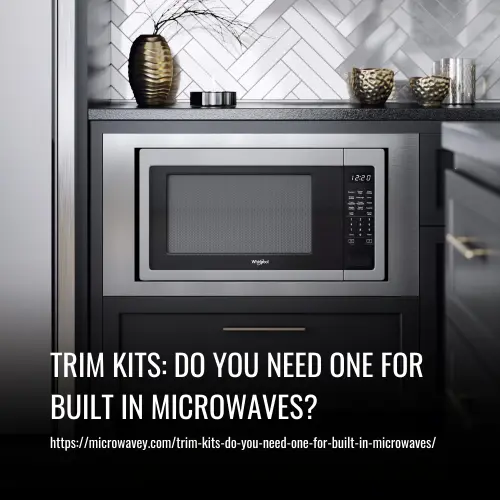How To Avoid Electrocution From A Microwave Oven
Electrocution is a very real and dangerous risk when it comes to using electrical appliances. Microwave ovens, in particular, can become extremely hazardous if the proper safety precautions are not taken.
In this article, I’ll be discussing how to avoid electrocution from a microwave oven so you can enjoy its convenience without having to worry about your safety.
We all know that electricity carries an inherent danger with it, but many people don’t think of taking extra steps to ensure their own protection while dealing with high-voltage appliance such as microwaves. That’s why it’s important for everyone to understand the basics of avoiding electrocution – by familiarizing yourself with these tips, you’ll be able to use your microwave safely and securely every time.
Understanding The Hazards Of Electricity
Electricity is a powerful force, and it’s essential to understand how to keep yourself safe when working with electrical appliances.
Electrical safety experts recommend following these guidelines for shock prevention: make sure the power source is securely turned off before attempting any repairs or maintenance on an appliance, verify that all wiring is properly secured and insulated, wear protective gear such as rubber gloves and eyewear while performing repairs or installations, check outlets regularly for frayed cords or other signs of damage, and never use water near electricity.
When using a microwave oven, always be aware of potential hazards associated with electricity. Take care not to touch exposed wires or internal components during operation; if you must open up the cabinet of your oven for any reason (for example, cleaning), unplug the unit first!
Additionally, ensure that all sealing surfaces remain intact in order to prevent electric shocks from occurring. Following these simple tips will help keep you safe around the kitchen.
Unplugging The Microwave Before Cleaning
As electricity continues to be an integral part of daily life, it is essential that we understand the potential hazards associated with it. When operating a microwave oven, these dangers can be even more pronounced due to the large amount of energy contained within.
To ensure safety and prevent any electrocution accidents from occurring, there are certain precautionary measures one should take before cleaning or maintaining a microwave oven.
Like all electrical appliances, the primary step in avoiding shock when dealing with a microwave oven is to unplug it from its power source before taking any action on it.
In addition to this basic rule of thumb, here are some other preventative measures you should follow:
Always check for frayed cords and wires as they could potentially expose live current if tampered with.
Avoid contact with water around the appliance — both during use and clean-up — as this increases the risk of electric shocks.
Wear protective gear such as rubber gloves and shoes while working on the appliance.
Make sure no metallic objects come into contact with the internal parts of the appliance while servicing it.
By following these simple steps, you can drastically reduce your risk of being exposed to dangerous levels of electricity while using or cleaning your microwave oven.
Checking The Cord And Plug For Damage
It’s important to check the cord and plug of your microwave for any damage.
Visual inspection is key when it comes to electrical safety, so look out for signs like fraying or kinks in the cords.
Make sure that all connections are secure and intact; a loose connection can cause an electric shock if touched.
Even if everything looks fine, be sure to check the voltage output before use. This will help ensure that you’re not running too much electricity through the oven which could lead to electrocution.
When checking voltages, never exceed the recommended amount listed on the product manual; doing so puts yourself at risk of getting shocked.
With these precautions in place, you can make sure that using a microwave isn’t hazardous to your health!
Avoiding The Use Of Extension Cords
It is important to ensure your safety when using a microwave oven. To avoid electrocution, you should never use an extension cord with the appliance.
Extension cords can draw too much power from a single outlet, causing electric surges that could potentially damage the microwave or even cause severe injury.
Investing in surge protection for any appliances and electronics is also highly recommended as it will help protect them from such electrical issues.
When handling microwaves, always remember to unplug them before attempting any repairs or cleaning of parts.
Additionally, keep all metal objects away from the inside of the oven’s cavity to prevent sparking that may result in serious injury or fire hazards.
By following these guidelines, you can greatly reduce the chances of being electrocuted by a microwave oven and create a safe environment for yourself and those around you.
Keeping The Oven Away From Water
Storing water and preventing spills near a microwave oven might seem like common sense, yet many people are still surprised to learn that this is one of the most important tips when it comes to avoiding electrocution.
After all, water and electricity don’t mix!
As an electrical safety expert, I’m going to let you in on a little secret: no matter how careful you think you’re being with your appliance, if there’s even just a tiny drop of liquid anywhere around or inside the oven, it could cause an electric shock.
That’s why it’s so critical that you make sure to keep any liquids away from your microwave at all times – not only for safety reasons but also because accidental spills can damage the internal components of the oven as well.
So be smart about where and how you store water – keeping it far away from any possible contact with your microwave will help guarantee its longevity and protect yourself from potential harm.
Cleaning The Oven Regularly
Regular cleaning of your microwave oven is essential to ensure it runs safely and efficiently.
One important aspect of the cleaning process that should not be overlooked is the possibility for moisture buildup inside the appliance. Moisture can cause a short in wiring, leading to potential electrocution or other hazards. To avoid this, make sure you regularly wipe down any surfaces where liquid has been spilled — either on the outer surface of the oven or between cracks — using a damp cloth.
Additionally, every 6 months you should use more thorough cleaning techniques such as unplugging the power cord and wiping down all interior surfaces with a mild detergent solution.
Make sure you also check behind panels and around corners for dust build-up which may need to be vacuumed out periodically.
Taking these steps will help keep your microwave safe from electrical shocks and prolong its lifespan.
Refraining From Tampering With Internal Wiring
When it comes to ensuring safety against electrocution from a microwave oven, avoiding shortcuts is the key. It’s imperative that no one ever attempt to tamper with any of its internal wiring or components. The consequences could be catastrophic and lead to serious injury or even death.
Here are some must-follow guidelines when dealing with microwaves:
Never open up the appliance’s casing. Unless you have professional experience in electrical engineering, stay away from attempting repairs on your own. As tempting as it may seem, this can only lead to disaster.
Unplug all power sources before carrying out any maintenance work within the unit itself. This includes both unplugging from the mains outlet and disconnecting the battery supply if applicable.
Get help from an expert electrician whenever necessary for diagnostics or repair works associated with microwaves—it’s always better to err on the side of caution than face potential danger!
To summarize, preventing electrocution requires taking extra care when dealing with a microwave oven; never take unnecessary risks by tampering with its construction and entrust professionals instead for assistance.
Wearing Protective Gear When Working On The Oven
Whenever you are working on a microwave oven, it is essential that you take all the necessary safety precautions.
The primary precaution to take when handling any electrical appliance is to wear protective gear such as gloves made of non-conductive materials like rubber. This will help protect your hands from possible electric shocks due to contact with conductive material in the oven.
You should also avoid wearing metal jewelry or clothing while working on the oven since these items can act as potential conduits for electricity and could potentially cause electrocution.
It’s important to be mindful when performing any maintenance work on an electronic device, especially one that runs off of electricity. By taking proper safety measures such as wearing insulated gloves and avoiding contact with conductive materials, you can reduce the risk of accidental electrocution and keep yourself safe from harm.
Make sure to follow all instructions carefully and stay alert at all times when interacting with electronic appliances.
Installing Gfci Outlets Near The Oven
The benefits of GFCI outlets are numerous, and they can be a great way to avoid electrocution from a microwave oven. Installing them properly is important, so make sure you have the right tools and knowledge before attempting to do it yourself.
Benefits Of Gfci Outlets
By installing GFCI outlets near the oven, you can analyze risks and inspect outlets for potential shock or electrocution.
Not only does this provide an extra layer of protection from potential electrical hazards, but it also helps to reduce the need for costly repairs by catching any problems early on before they become serious issues.
Additionally, GFCI outlets are incredibly easy to install and maintain; most homeowners can do it themselves with a few simple tools.
So if you’re concerned about protecting your family from electric shocks, then consider investing in some GFCI outlets – you won’t regret it!
Installing Gfci Outlets
Now that we’ve covered why it’s important to install GFCI outlets near the oven, let’s talk about proper placement.
With any electrical outlet installation project, you want to make sure the circuits are properly grounded and all wiring is up-to-code.
It’s also necessary to check clearances around cabinets or other combustible materials.
If everything looks good and meets safety codes, then your GFCI outlets should be ready for use!
Properly placed outlets can give you peace of mind knowing that your family is safe from potential electric shocks.
Contacting A Professional For Repairs And Maintenance
When it comes to ensuring the safety of your microwave oven, hiring an expert to conduct regular inspections and maintenance is essential. Not only do licensed professionals possess specialized training in electrical safety, but they also have experience identifying potential hazards that may be overlooked by untrained individuals.
Furthermore, these experts can provide you with valuable information on how to properly use your appliance while avoiding any risks associated with its operation.
Here are some key reasons why you should hire an experienced professional for repairs and maintenance:
- They know all the ins-and-outs of a microwave oven’s electrical system.
- They can help identify faulty components or wiring before they become a hazard.
- Their expertise will enable them to take preventive measures against future problems.
- They can perform safety checks to ensure compliance with local codes and regulations regarding electricity usage.
By securing the services of an experienced specialist, you are taking the necessary steps towards safeguarding yourself from electric shock or other electrical hazards related to operating a microwave oven.
Conclusion
In conclusion, it’s essential to take the necessary precautions when dealing with a microwave oven in order to avoid electrocution. By understanding the hazards of electricity, unplugging and checking cords and plugs for damage, avoiding extension cords, keeping the oven away from water, refraining from tampering with internal wiring, wearing protective gear during repairs or maintenance and installing GFCI outlets near the oven you can stay safe.
It’s important to note that according to research by Electrical Safety Foundation International (ESFI), microwaves are one of leading causes of electrical fires in residential homes caused by appliance failure1. As such, it’s even more important to be aware of potential risks associated with using them.
Finally, I highly recommend seeking professional help if you’re unsure about any aspect when working on your microwave oven.
Remember that safety should always come first!
1https://www.esfi.org/resource/microwave-ovens-and-fire-safety-794
2https://www.cpsc.gov/Safety-Education/Safety-Guides/Home/Appliances/Microwave-Oven-Safety




